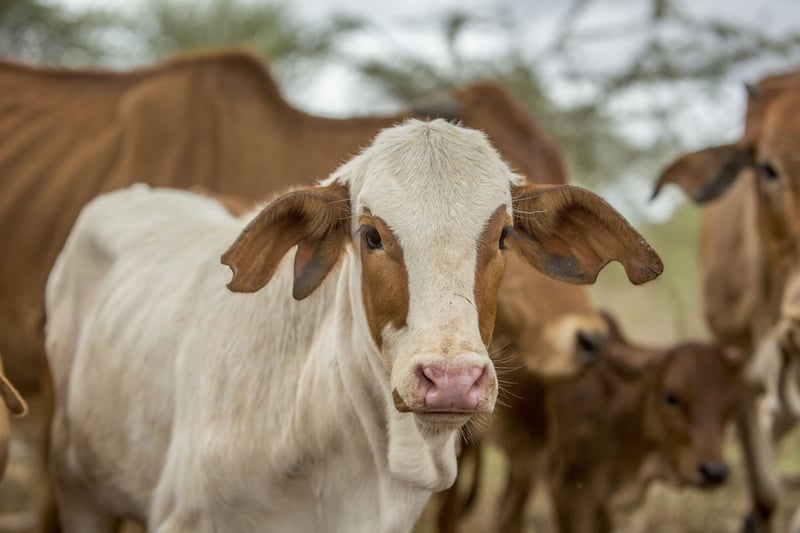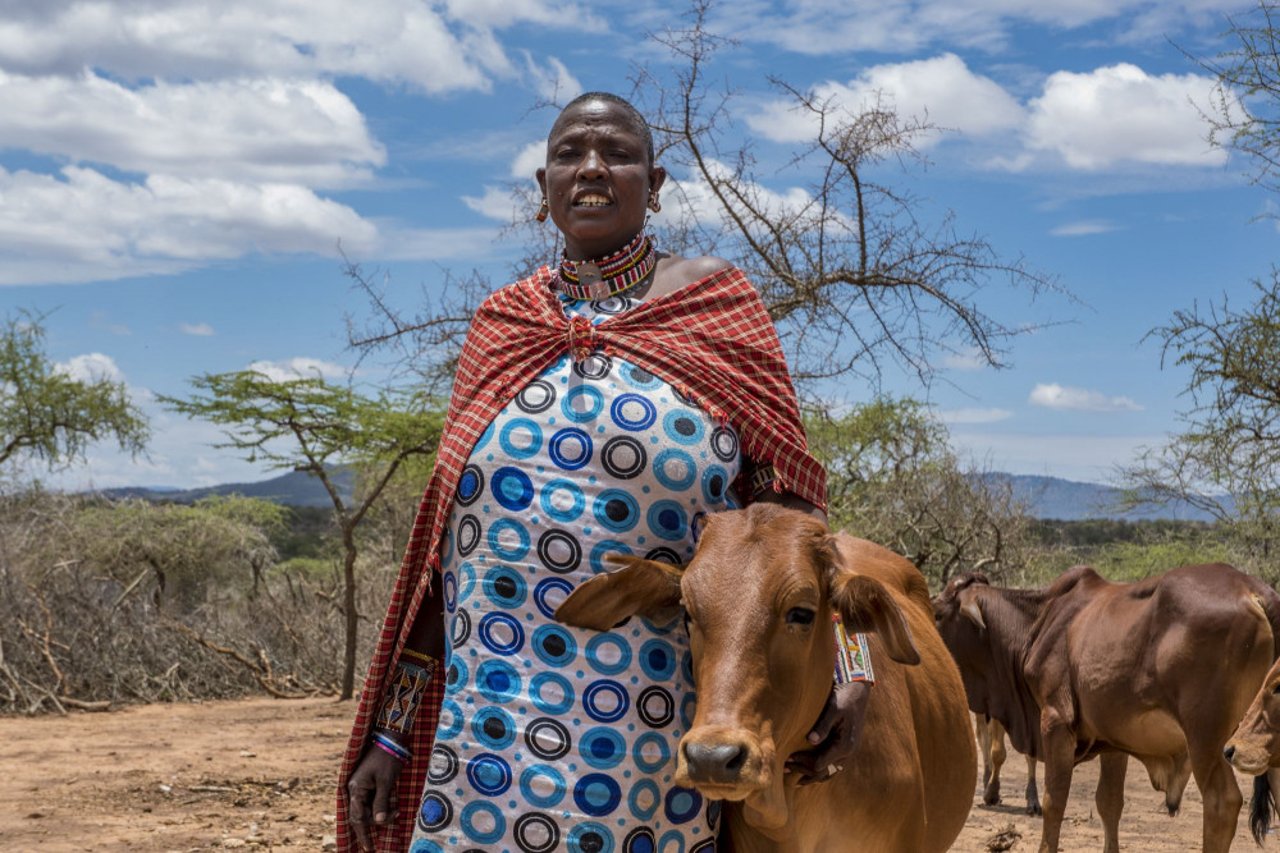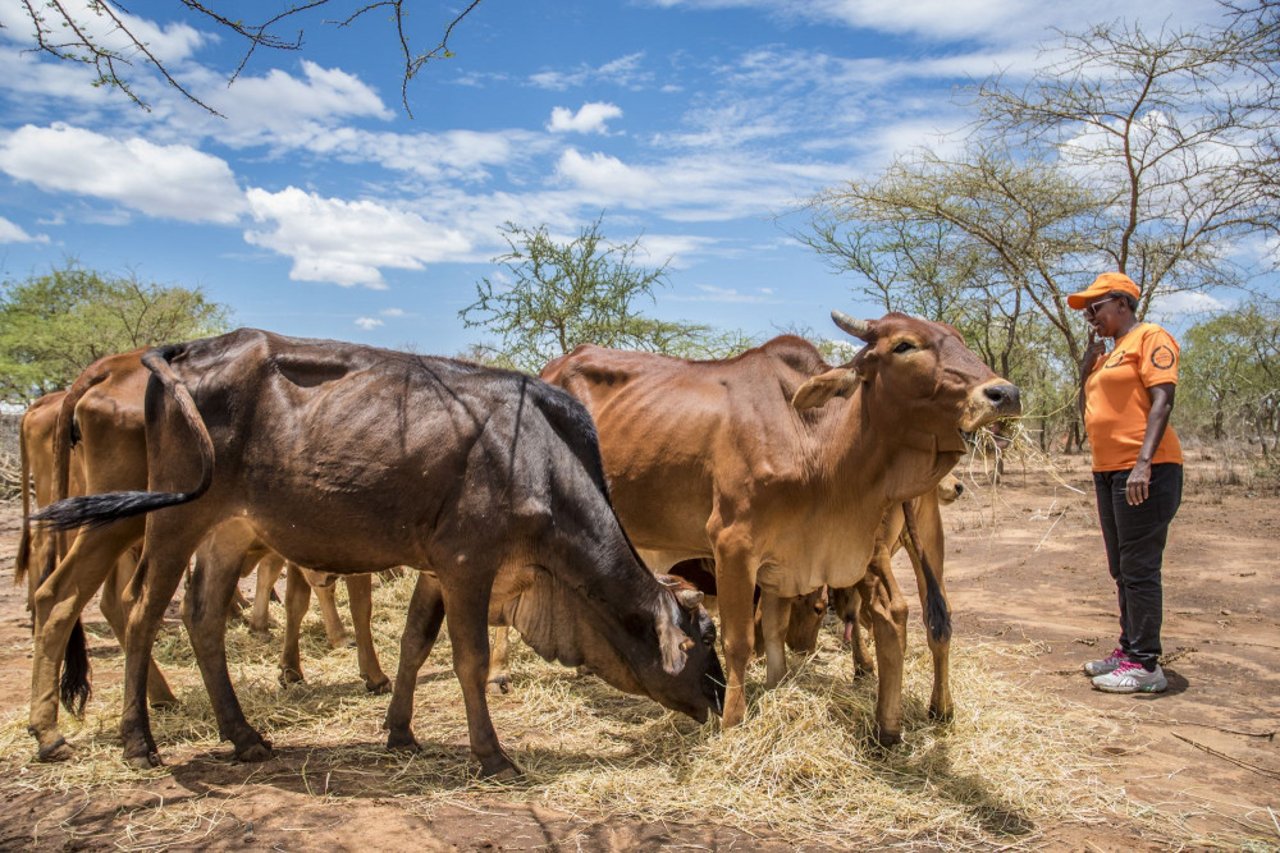
International Women’s Day: Celebrating women who work to protect their animals
News
Amidst the longstanding drought that has ripped off any trace of pasture in Kajiado County, Kenya, women are still giving hope to their livestock.
A moment with Jane and her animal friends
On 2nd March, we visited Ngatataek sub location, a quiet area made up of, dry cacti trees, thorny bushes and hints of what was once green grass. We meet Jane Kitaluni,43, a livestock farmer pouring drinking water for her animals in a traditionally designed trough.
As we walked into her compound, we could tell it’s not been an easy journey for the family. Her livestock had just returned from a long grazing trip about 30km away from their locality. They looked pale and the visible ribs on their bodies reflected the exertions put on by the extreme weather conditions.
Her youngest calf, Nenditiyo, who is one year and seven months old, runs towards her and rubs herself against her Maasai clothing. Jane smiles while reciprocating the love by rubbing her hand on the calf’s back. It is evident that they have a special bond.
It’s a lucky day. There was water on arrival back home and Jane had purchased six bales of hay to last for a few weeks before she can figure out her next step.
“I cannot afford to lose more livestock. The drought that hit our area in 2017, saw me lose 25 cows and 30 goats. It was a painful experience,” Jane tells us.
Fighting for her animals
A mother of five children, bears it all when it comes to providing for the family and ensuring her animals are well protected. The hay she now purchases once in a blue moon is financed by the charcoal business she now must run as an alternative source of livelihood.
Before the drought erupted, she was solely dependent on selling milk from her cows which would produce at least five litres a day. This would be enough to feed her family, save up money for her children’s school fees and cater to the needs of her animals.
When we asked if she gives mineral salts to the herd, her answer comes out effortlessly, ”it is not remotely possible.” With the dire situation, affording additives is a long short. A 2kg packet which can only last for a round, costs at least 2 USD.
Shining light where there was once none
Regardless of the challenges thrown at her, she’s not relenting in the fight to ensure her livestock see better days. This zeal to survive is evident in her eyes and those of the animal she keeps.
As we conclude the interview she asks to hitch a ride to the market where she’s going to sell her last bag of charcoal to save up for her next hay purchase.
Jane’s story is the case for most women in Kajiado county, they graze, walk for kilometers in search of water and do everything possible to keep their animals heathy or the least, alive.
This International Women’s Day, we acknowledge all the women in the fight for animal welfare. Because of you, the future looks promising.
Take action
Do not lose your animals when a drought strikes, download our easy to read and digest tips to protecting your animals.

